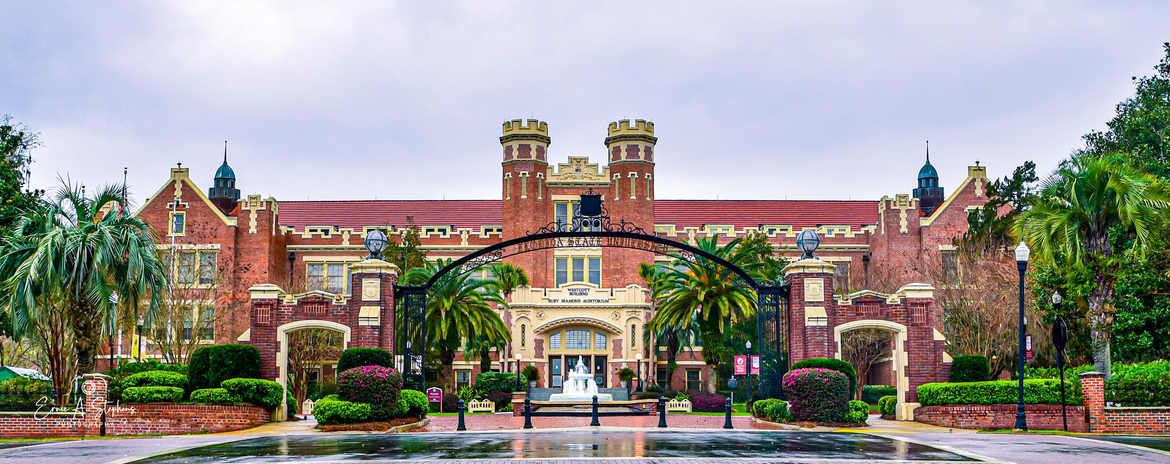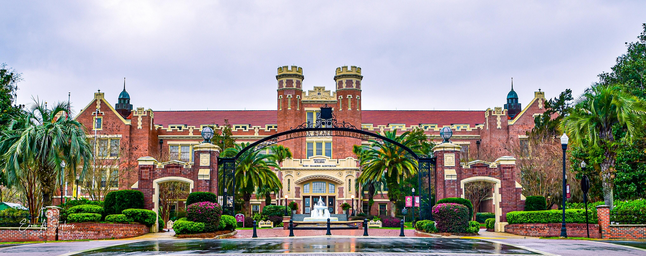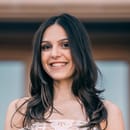This semester at Florida State University (FSU), I had the pleasure of meeting Dr. Jillian Weise, who is one of my professors for a Senior Seminar course titled “Cyborg Theory and Practice.” Despite her recent arrival to the position, Weise’s time at FSU began during her undergraduate career.
Her Campus (HC): What attracted you to the English department at FSU and convinced you that you wanted to join the faculty?
Jillian Weise (W): As a poet and a writer of prose, I have always admired the Creative Writing Program at Florida State. Both the program and the department of English are the top in the nation. I received my undergraduate degree at FSU in 1999. I went to the University of North Carolina at Greensboro, and I also attended the University of Cincinnati for my Ph.D. Everything was wonderful, but I kept thinking about how I wanted to return to FSU.
Before my job at FSU, I was at Clemson University for fifteen years. However, I decided to leave because I outgrew the department at Clemson. Today, I am thrilled to be at FSU because of the creative writing program, the undergraduate creative writers, and my colleagues who are doing imperative work.
HC: What are your current teaching assignments and how are these different from others you may have had in the past?
JW: My teaching assignments are so different. For the first time, I am teaching a senior seminar course called Cyborg Theory and Practice. I am writing a book, Common Cyborg, which makes the case that cyborgs are disabled people. When I first arrived at FSU as a new faculty member, I asked the department if I could teach this class because it is in line with my research. I am also teaching a poetry workshop course. These are all Ph.D. students who have such great writing skills. Overall, I am excited to teach both these classes even though they are very different from what I have taught in the past.
HC: What is your teaching philosophy?
JW: Ever since the pandemic, my teaching philosophy has changed. I realized that assigning midterms and taking attendance was just not important anymore. I want my students to thrive and stay alive. It is that simple. I also leaned into my disability rights activism and discovered accommodations for my own classroom. I encourage myself and my students to feel like we all choose this safe classroom environment.
HC: What do you want students to learn in your class?
JW: Pride is something I want my students to learn for any marginalized identity they may have. It is difficult to recognize disability pride because disability is seen as a lack of and as a missing piece to the human body. Also, students have different learning styles. Students should not be penalized, one way or the other. It should be equal and fair. We are all different, and we do not have to conform to one style or to what the universe says we should be. I am a better teacher because of my students’ writing.
HC: I know that you are open with your disabilities both in-person and online. How would you summarize your perspectives and the way you embrace life?
JW: My feelings about my own disability are not static. I am constantly changing my mind and looking for my next move as a disability rights activist. I was born disabled, so you would think I know it all. However, I do not, and I am learning from marginalized individuals and other activists. Today, I am writing and showing up for disabled people.
The English department at Florida State University welcomes Dr. Weise.
Want to see more HCFSU? Be sure to like us on Facebook and follow us on Instagram, Twitter, TikTok, YouTube and Pinterest!



